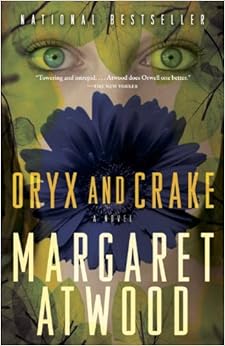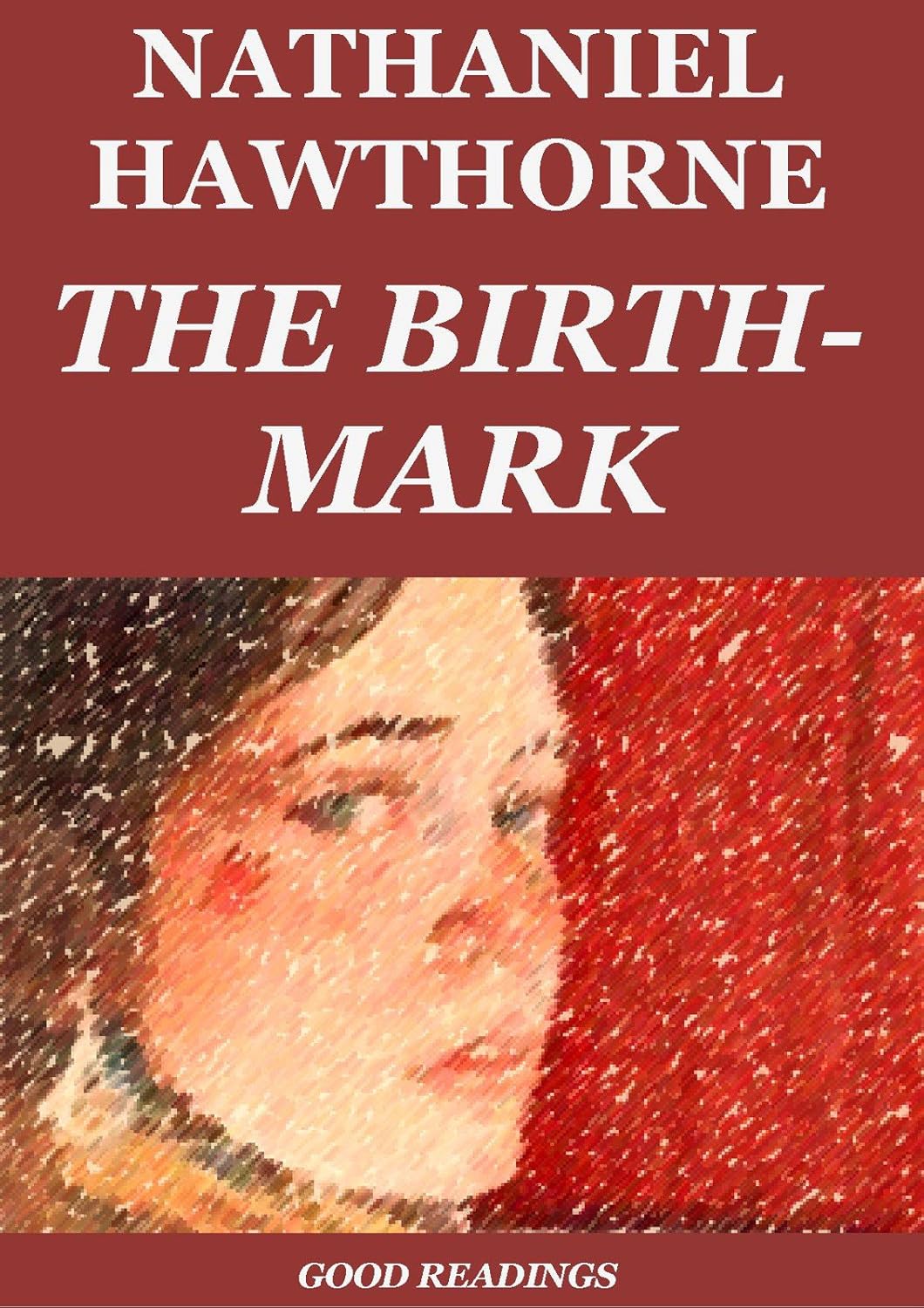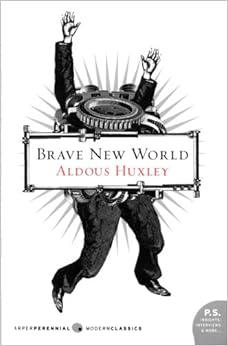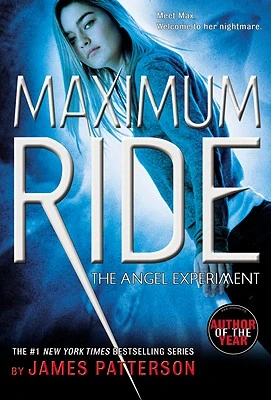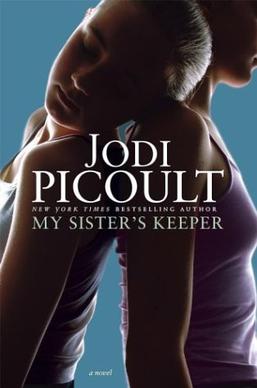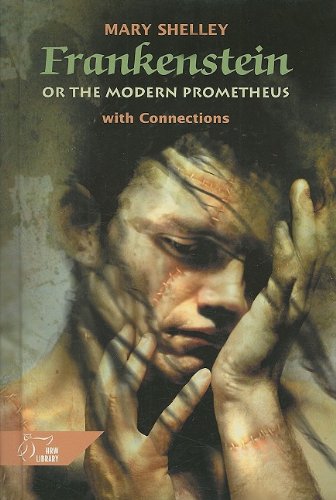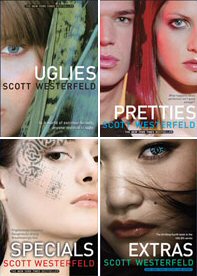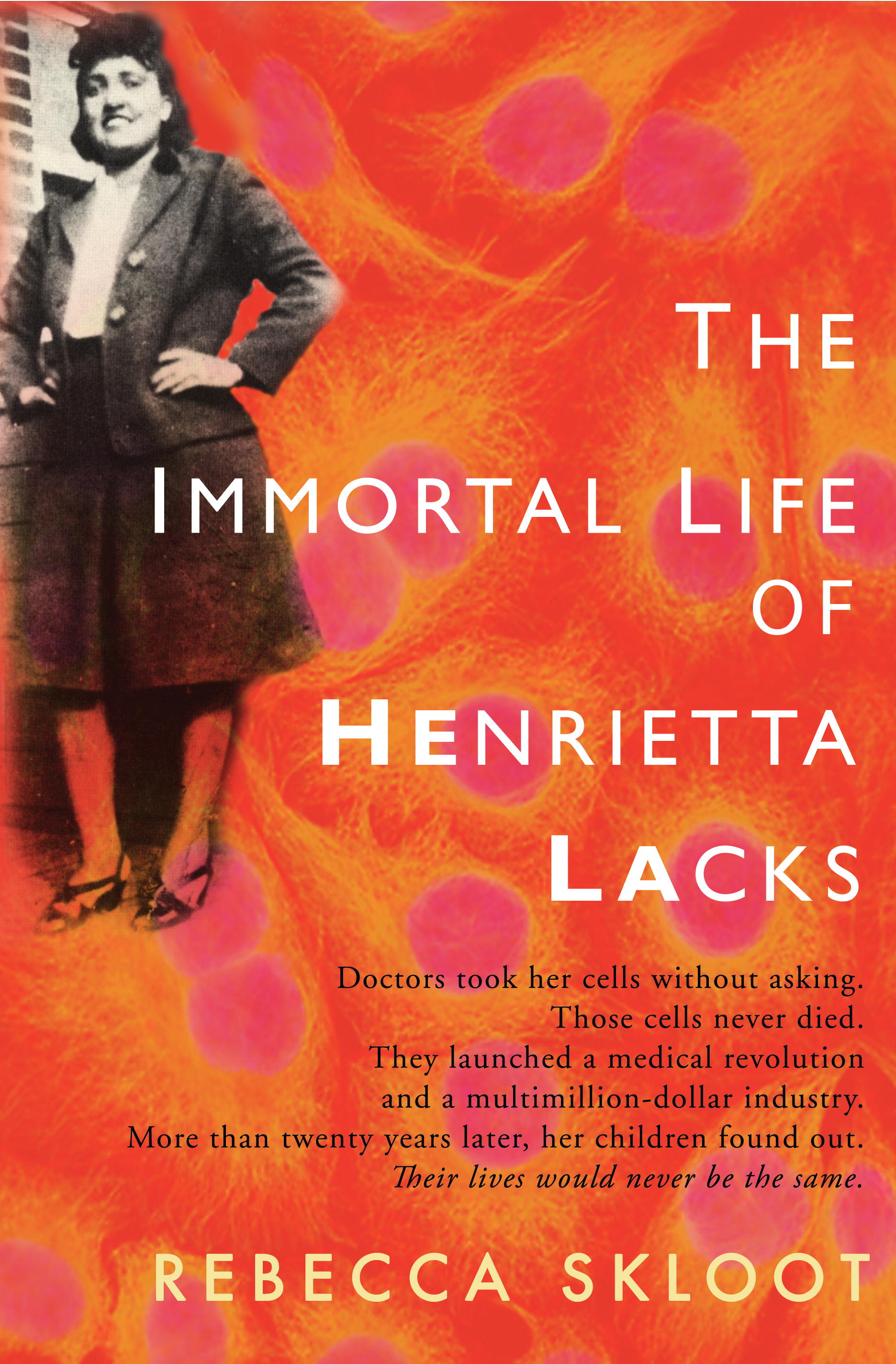|
The Handmaid's Tale
Margaret Atwood
In the world of the near future, who will control women's bodies?
Offred is a Handmaid in the Republic of Gilead. She may leave the home of the Commander and his wife once a day to walk to food markets whose signs are now pictures instead of words because women are no longer allowed to read. She must lie on her back once a month and pray that the Commander makes her pregnant, because in an age of declining births, Offred and the other Handmaids are only valued if their ovaries are viable.
|
|
|
|
Oryx and Crake
Margaret Atwood
The narrator of Atwood's riveting novel calls himself Snowman. When the story opens, he is sleeping in a tree, wearing an old bedsheet, mourning the loss of his beloved Oryx and his best friend Crake, and slowly starving to death. He searches for supplies in a wasteland where insects proliferate, and pigoons and wolvogs ravage the pleeblands where ordinary people once lived, and the Compounds that sheltered the extraordinary. As he tries to piece together what has taken place, the narrative shifts to decades earlier. How did everything fall apart so quickly? Why is he left with nothing but his haunting memories?
|
Darwin's Radio and Darwin's Children
Greg Bear
Ancient diseases encoded in the DNA of humans wait like sleeping dragons to wake and infect again—or so molecular biologist Kaye Lang believes. And now it looks as if her controversial theory is in fact chilling reality. For Christopher Dicken, a "virus hunter" at the Epidemic Intelligence Service, has pursued an elusive flu-like disease that strikes down expectant mothers and their offspring. Then a major discovery high in the Alps—the preserved bodies of a prehistoric family—reveals a shocking link: something that has slept in our genes for millions of years is waking up.
|
|
Top of Page
|
|
5 to 1
Holly Bodger
In the year 2054, after decades of gender selection, Koyanagar–a country severed from India–now has a ratio of five boys for every girl, and women are an incredibly valuable commodity. Tired of wedding their daughters to the highest bidder and determined to finally make marriage fair, the women of Koyanagar have instituted a series of tests so that every boy has the chance to win a wife. But after fighting so hard for freedom against the old ways of gender selection, these women have become just as deluded as their male predecessors. Sudasa Singh doesn’t want to be a wife and Kiran, a boy competing to be her husband, has other plans as well. |
A Number
Caryl Churchill
This play addresses the subject of human cloning. How might a man feel to discover that he is only one in a number of identical copies. And which one of him is the original? The play opens the Royal Court's autumn season, directed by Caryl Churchill's regular collaborator, Stephen Daldry.
|
|
|
|
Jurassic Park
Michael Crichton
An astonishing technique for recovering and cloning dinosaur DNA has been discovered. Now humankind’s most thrilling fantasies have come true. Creatures extinct for eons roam Jurassic Park with their awesome presence and profound mystery, and all the world can visit them—for a price. Until something goes wrong. . . .
|
Clones
Jack Dann and Gardner Dozois
Long before there was Dolly the sheep, there were brilliant science fiction authors speculating on the power and potential, the temptations and the terrors, of cloning. Join them as they explore the ideas, the implications, and the dramatic possibilities in this collection of nine stories by Ursula K. LeGuin, Joe Haldeman, John Varley, Greg Egan, Damon Knight, Ian R. MacLeod, Kate Wilhelm, Pamela Sargent, and Charles Sheffield.
|
|
Top of Page
|
|
The House of the Scorpion
Nancy Farmer
Matteo Alacrán was not born; he was harvested. His DNA came from El Patrón, lord of a country called Opium—a strip of poppy fields lying between the United States and what was once called Mexico. Matt's first cell split and divided inside a petri dish. Then he was placed in the womb of a cow, where he continued the miraculous journey from embryo to fetus to baby. He is a boy now, but most consider him a monster—except for El Patrón. El Patrón loves Matt as he loves himself, because Matt is himself.
|
The Birthmark
Nathaniel Hawthorne
The main character is a great scientist and lover of nature with a beautiful wife whom he loves dearly. However, despite the love Aylmer has for his wife, he wonders whether the birthmark she has on her cheek can be removed. |
|
Top of Page
|
|
The Secret
Eva Hoffman
Iris Surrey has a secret.
Iris Surrey is a secret.
An only child, Iris lives with her mother in a rambling house in a small Midwestern town. Her mother is everything: provider, confidante, friend. But at seventeen, Iris begins to question their nearly symbiotic relationship—and the noticeable lack of others in their sheltered world. Where is Iris’s father? Where are her grandparents? What is her mother keeping from her? When she stumbles upon the explosive truth, Iris begins a monumental journey of self-discovery—one that will throw everything she has ever known into turmoil.
|
Brave New World
Aldous Huxley
Aldous Huxley is rightly considered a prophetic genius and one of the most important literary and philosophical voices of the 20th century, and Brave New World is his masterpiece. From the author of The Doors of Perception, Island, and countless other works of fiction, non-fiction, philosophy, and poetry, comes this powerful work of speculative fiction that has enthralled and terrified readers for generations. |
|
Top of Page
|
|
Never Let Me Go
Kazuo Ishiguro
Never Let Me Go is a 2005 dystopian science fiction novel by Japanese-born British author Kazuo Ishiguro. It was shortlisted for the 2005 Booker Prize, for the 2006 Arthur C. Clarke Award and for the 2005 National Book Critics Circle Award.
|
Uninvited Series
Sophie Jordan
When Davy tests positive for Homicidal Tendency Syndrome, aka “the kill gene,” she loses everything. Once the perfect high school senior, she is uninvited from her prep school and abandoned by her friends and boyfriend. Even her parents are now afraid of her—although she’s never hurt a fly. Davy doesn’t feel any differently, but genes don’t lie. One day she will kill someone.
|
|
|
|
Flowers for Algernon
Daniel Keyes
Flowers for Algernon is the beloved, classic story of a mentally disabled man whose experimental quest for intelligence mirrors that of Algernon, an extraordinary lab mouse. In poignant diary entries, Charlie tells how a brain operation increases his IQ and changes his life. As the experimental procedure takes effect, Charlie's intelligence expands until it surpasses that of the doctors who engineered his metamorphosis. The experiment seems to be a scientific breakthrough of paramount importance—until Algernon begins his sudden, unexpected deterioration. Will the same happen to Charlie?
|
Top of Page
Beaker's Dozen
Nancy Kress
"Of the thirteen stories in this book, eight of them are concerned with what might come out of the beakers and test tubes and gene sequencers of microbiology. Not everything in these stories will come to pass. Possibly nothing in them will; fiction is not prediction. But I hope the stories at least raise questions about the world rushing in onus at the speed—not of light—but of thought." |
|
|
|
Beggars in Spain, Beggars Ride, and Beggars and Choosers.
Nancy Kress
The Beggars trilogy is set in a near future in which genetic engineering has become commonplace. "Genemods" were developed for intelligence, physical features, personality, enhanced sensory perception, and so on, but when Dr. Susan Melling discovered a genemod to alleviate the need for sleep, she changed the face of the world. These so-called "Sleepless" were not only more productive, due to 33% more hours in the day, but less prone to the vagaries of the unconscious mind due to their inability to sleep; they were well-adjusted, cheerful, intelligent, driven, and quickly came to dominate the scientific, economic, intellectual, medical, legal and technological arenas of the world, often at unprecedentedly young ages.
|
Top of Page
The First Century After Beatrice
Amin Maalouf
In the 21st century, a drug that guarantees the birth of boys—originally developed to reduce Third World populations—leads to a worldwide shortage of women. The result is an explosion of male violence, wars, and the sale of women on the black market. The narrator is a French entomologist trying to eradicate the drug. |
|
|
|
Mendel's Dwarf
Simon Mawer
Like his great-great-great-uncle, geneticist Gregor Mendel, Dr. Benedict Lambert struggles to unlock the secrets of heredity and genetic determinism. However, Benedict's mission is particularly urgent and particularly personal, for he was born with achondroplasia—he's a dwarf. |
Top of Page
The Maximum Ride Series
James Patterson
In James Patterson's blockbuster series, fourteen-year-old Maximum Ride, better known as Max, knows what it's like to soar above the world. She and all the members of the "flock"—Fang, Iggy, Nudge, Gasman and Angel—are just like ordinary kids, only they have wings and can fly. It may seem like a dream come true to some, but their lives can morph into a living nightmare at any time...like when Angel, the youngest member of the flock, is kidnapped and taken back to the "School" where she and the others were experimented on by a crew of wack jobs. |
|
|
|
My Sister's Keeper: A Novel
Jodi Picoult
Anna is not sick, but she might as well be. By age thirteen, she has undergone countless surgeries, transfusions, and shots so that her older sister, Kate, can somehow fight the leukemia that has plagued her since childhood. The product of preimplantation genetic diagnosis, Anna was conceived as a bone marrow match for Kate—a life and a role that she has never questioned… until now. |
Top of Page
Generosity
Richard Powers
What will happen to life when science identifies the genetic basis of happiness? Who will own the patent? Do we dare revise our own temperaments? Funny, fast, and finally magical, Generosity celebrates both science and the freed imagination. In his most exuberant book yet, Richard Powers asks us to consider the big questions facing humankind as we begin to rewrite our own existence.
|
|
|
|
Frankenstein: Or, the Modern Prometheus
Mary Shelley
Frankenstein; or, The Modern Prometheus, is a novel written by English author Mary Shelley about eccentric scientist Victor Frankenstein, who creates a grotesque creature in an unorthodox scientific experiment. Shelley started writing the story when she was eighteen, and the novel was published when she was twenty. The first edition was published anonymously in London in 1818. Shelley's name appears on the second edition, published in France in 1823
|
The Golem
Isaac Bashevis Singer
From time to time, according to legend, a truly holy man may be empowered to fashion to golem out of clay, inscribe his forehead with the sacred name of God, and send the living effigy forth to save the Jews. |
|
|
|
Uglies series
Scott Westerfeld
In Tally Youngblood’s world, looks matter. She lives in a society created to function with perfect-looking people who never have a chance to think for themselves. And she’s tired of it. First as an ugly, then a pretty, and finally a special, Tally takes down the social infrastructure. And then, a generation later, a world obsessed with fame and instant celebrity—and filled with extras—will reap the consequences.
Top of Page
|
|





